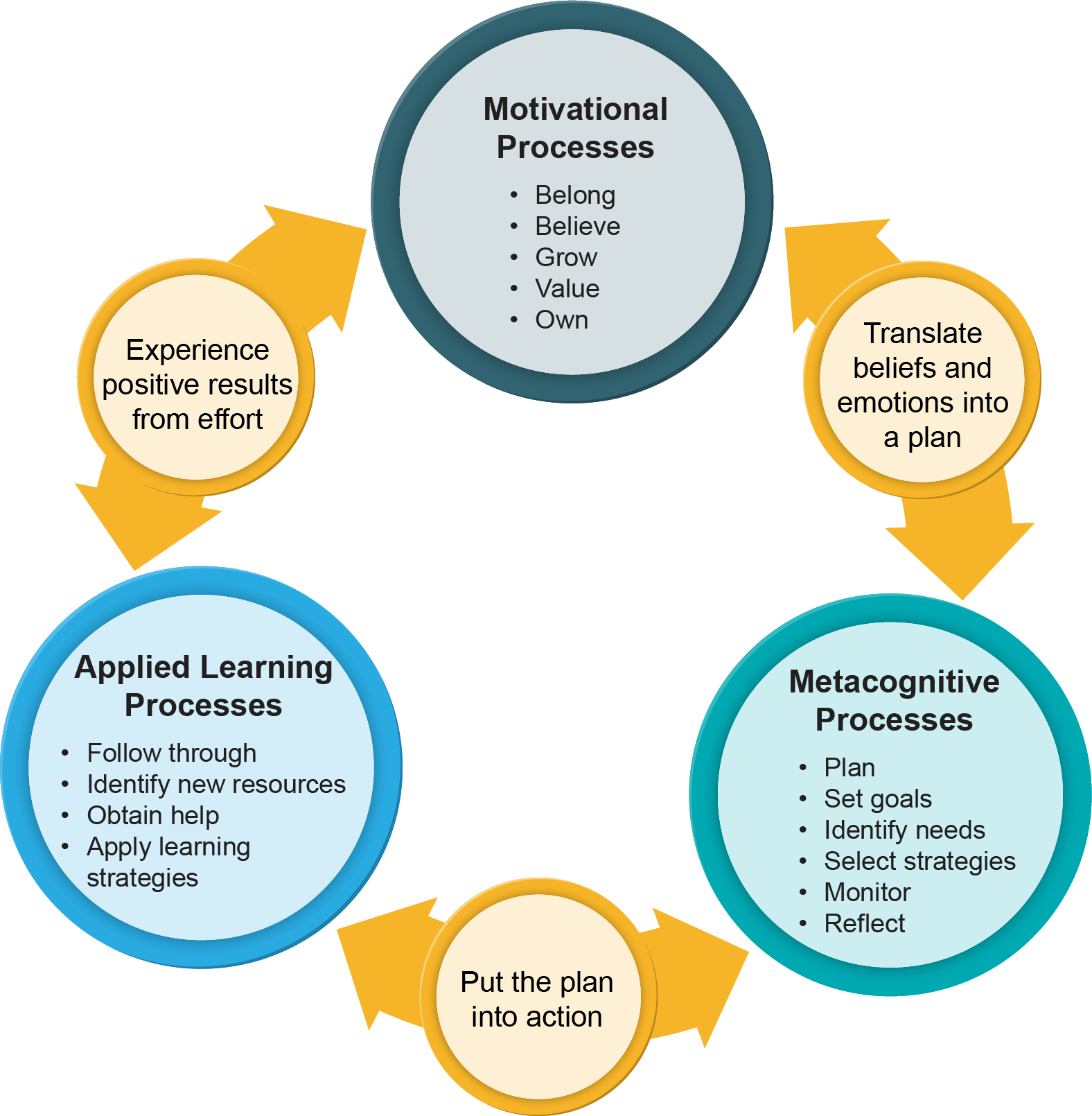
What do we mean by self-directed learning?
Self-directed learning is an umbrella term that includes concepts related to how students manage their learning, such as growth mindset, metacognition, and more concrete study skills. Research indicates students’ academic outcomes improve when they learn to coordinate three major components of self-directed learning: motivation, metacognitive processes, and applied learning approaches.
Overview of framework:
To successfully manage their learning, students need to develop their ability across three types of mutually reinforcing cognitive and behavioral processes:
- Motivational processes provide the foundational emotions and beliefs that energize students’ approach to learning.
- Metacognitive processes translate those emotions and beliefs into an action plan.
- Applied learning processes put that plan into action and adjust it as needed.
Motivational mindsets are influenced by students’ experiences in the classroom and in the larger institution. A supportive environment can reinforce students’ belief in their ability to learn and their sense of belonging, which are critical mindsets for success. Engaging in this cycle can enhance motivational beliefs by providing students with a positive experience of taking control of their learning.